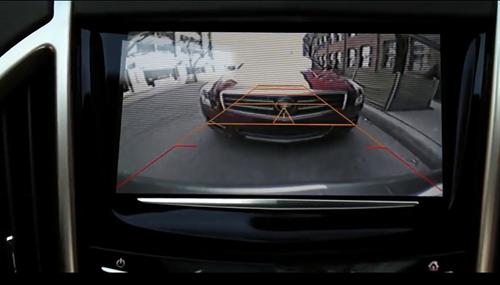
Advanced vehicle technologies and design assists elderly driving population
- Active safety features on GM vehicles help avoid crashes for all ages
- GM engineers focus on passenger spaciousness and comfort
- OnStar provides aging drivers with peace of mind
DETROIT – Active safety technologies, simple access to OnStar services and more spacious cabins are among the approaches General Motors is taking to serving aging drivers.
As a sponsor of the North American Conference on Elderly Mobility, GM this week is sharing its numerous active safety features which can be helpful to older drivers who can have longer reaction times, limited perceptual abilities and reduced dexterity
The Insurance Institute for Highway Safety points to several studies which have shown that higher levels of physical, cognitive or visual impairment among older drivers are associated with increased risk of being involved in a crash. Many older drivers also take medications, which can impair driving ability at any age but can be especially problematic for an older person.
Technologies like Rearview Back-up Camera, Front Park Assist, Rear Park assist, Side Blind Zone Indicators, Lane Departure Warning, Forward Collision Alert, Front Automatic Braking and Rear Cross Traffic Alert are among the active safety and driver assistance technologies that are particularly helpful to the aging population.
“The safety of all our customers is our utmost concern,” said Gay Kent, director, GM global vehicle safety and a presenter at the conference. “The great thing about many of our active safety technologies is that some, like the vibrating haptic seat, provide intuitive, non-visual cues to avoid startling the driver and prevent information overload or confusion.”
GM engineers and designers also are addressing passenger spaciousness and comfort. Focus areas include foot room and making it easier for passengers to get in and out of the vehicle.
Sitting in the back rows of a vehicle and swinging a foot through the open door can be a challenge for elderly people whose range of motion can be limited. To make it easier to enter and exit its crossovers and SUVs, GM designers optimized the spacing between the front seat and second and third rows.
“We have hosted many customer clinics to assess customer preference and requirements,” Kent said. “The information we gain through this research drives our teams’ design decisions as we work to incorporate their feedback. We have been able to increase the ease with which our customers enter and exit our seats over the last decade.”
Along with active safety and design modifications that provide benefit to all passengers including the aging population, GM’s OnStar technology provides elderly drivers the peace of mind they need while traveling. Services such as Turn-by-Turn Navigation, Roadside Assistance, Automatic Crash Response, Emergency Medical Dispatch and Remote Door Unlock, coupled with access to a live advisor at the touch of a button, can make all drivers feel more confident while on the road.
“Advanced safety technologies such as those found in GM vehicles, make our roads safer for everyone by sensing potential hazards and warning the driver to take appropriate actions to help prevent a crash from occurring,” said Jim Santilli, executive director, Traffic Improvement Association of Michigan. “With elderly drivers generally experiencing decreased visual performance and reaction time, these advanced safety technologies are especially beneficial to this age group. Vehicles with these technologies will help us with our goal to move closer Toward Zero Deaths.”
